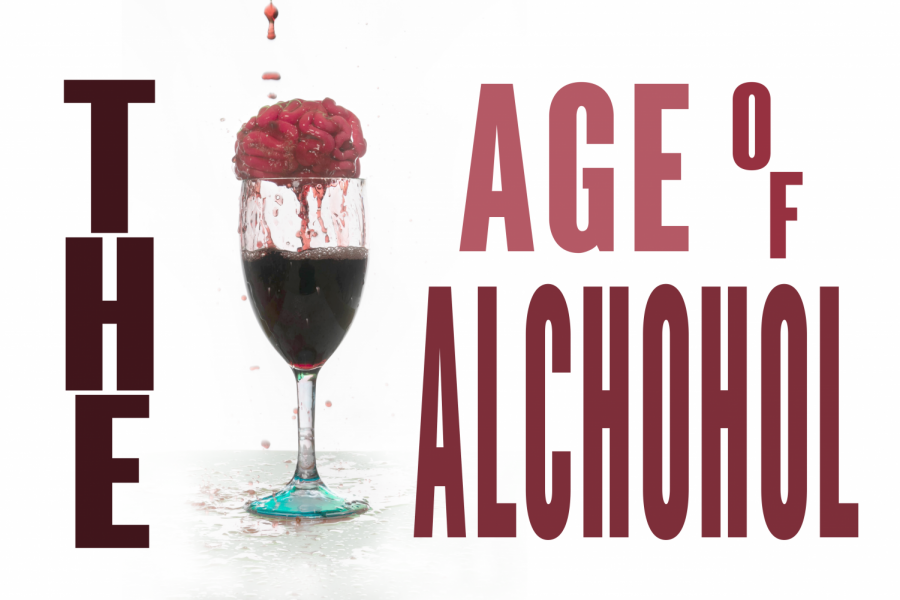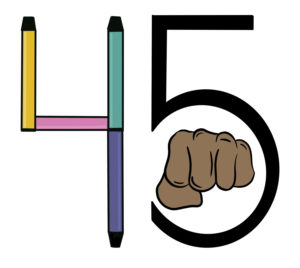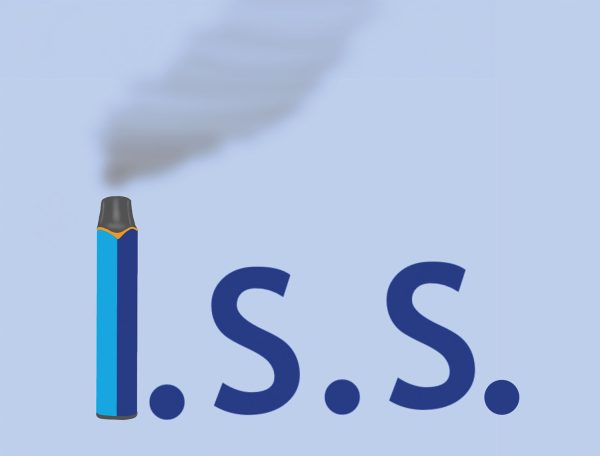The age of alcohol
The underlying effects of underage drinking
September 17, 2019
Sometimes, the most basic of human desires can morph into an unhealthy obsession, impacting one’s psychological or biological state for years, if not a lifetime, to come. Recent THS almuna Jane Doe has experienced this phenomenon first hand in the form of inebriated mistakes, violent encounters, and a longing for acceptance.
“I started drinking when I was roughly 13. It started as something to be cool with older teenagers that I hung out with,” recent THS alumna Jane Doe said.
Doe’s journey with alcohol abuse begins with an urge to fit in, but as she ages into adolescence and her anxiety levels spike, it spiraled into much more.
“The further I went, the worse it got. I would be drinking and showing up to school. I would be drinking going to family events. I would show up drunk anywhere,” Doe said.
Despite what many may hope, Doe was not alone in her habits. Alcohol, to many American adolescents, is a forbidden fruit. With foreign countries boasting more lenient drinking laws, the American experience seems increasingly limited for those underage. 18 is when many Europeans are deemed drink-ready. Some nations, such as Denmark and Russia, adopt fewer laws on liquor than America, whose drinking age remains at 21.
America’s view on liquor is not without reason. As frustrating as the law is to those on the brink of legality, science teacher Jessica Sharp explained the reasoning behind the legislation.
“It is very bad to drink during specific developmental times in your life. It releases specific neurochemicals that inhibit the function [of the brain] at those critical points,” Sharp said.
High schoolers are amidst one of these formative periods. Alcohol can tarnish the adolescent psyche, causing anxiety and depression. These feelings can escalate into higher suicide rates than the sober population.
Doe began her substance abuse with a preexisting disorder that only worsened when alcohol was added into the mix.
“As I got older, I realized that I had bipolar disorder and instead of getting on meds and being smart like a normal person would, I decided to ignore it,” Doe said.
This negligence of her mental health only intensified her condition, impacting her social life and sense of self.
“There’s people that I see now in public that I know don’t like me or hate me for something that, chances are, I don’t even remember doing,” Doe said. “It would make me that much more impulsive, that [much angrier] at times, that much [snappier], that much more depressed. It would just accelerate my disorder times 10 in a way that I wasn’t proud of.”
Doe’s emotional impulsivity and memory loss may relate to the consequences alcohol harbors on the ever evolving teenage mind. The National Institute on Alcohol Abuse and Alcoholism explains drinking most likely reduces the size of the part of the brain that aids in memory in teenagers. The same organization states it also may negatively impact the area of the brain that connects the brain’s left and right hemispheres.
“You’ve got your neurons, and as they’re laying down connections, they’re having to line up in a specific way, so they fire correctly,” Sharp said. “But what happens when you’re drinking alcohol, it acts as an inhibitor, and so a lot of times those neural connections don’t form correctly. So your frontal cortex, where you can make logical decisions, never fully forms.”
If the neurons don’t fire correctly, the effects are permanent. Grades could slip. Options for college could fade. General knowledge may gradually deteriorate. In other words, drinking not only has the potential to harm the youthful during their youth, these consequences can last a lifetime.
“Because your brain develops in a sequence throughout your life, if you disrupt one of those critical development time periods, there’s no getting it back,” Sharp said. “If you don’t lay down those neural pathways, other ones will develop and they won’t develop correctly.”
However, the outcomes of underage drinking are not purely mental. As the NIAAA has also states, drinking can lower the estrogen levels of pubescent girls. Intoxication holds similar threats for boys, reducing testosterone levels and bone mineral density.
“You can do liver damage, you can actually do kidney if you drink too much and you’re on something else. So there’s other things you can do besides mess up your brain,” Sharp said.
When more violent physical side effects struck Doe, she knew a lifestyle transformation was overdue.
“I hit about 17. I went to a party one night and I got super drunk, woke up and I had evidence of being sexually abused,” Doe said. “I woke up naked in a trash can about 40 minutes from where my car was, and I realized I needed to change what I was doing.”
The next steps of her recovery consisted of trials, errors, and seeking refuge in loved ones. Currently, this new lifestyle could not be treating her better.
As for seeking assistance regarding substance abuse, “find someone you trust, and tell them and don’t get your feelings hurt when they have to give you the hard truth,” Doe said. “Because transparency is the only way you’re going to get better.”





















